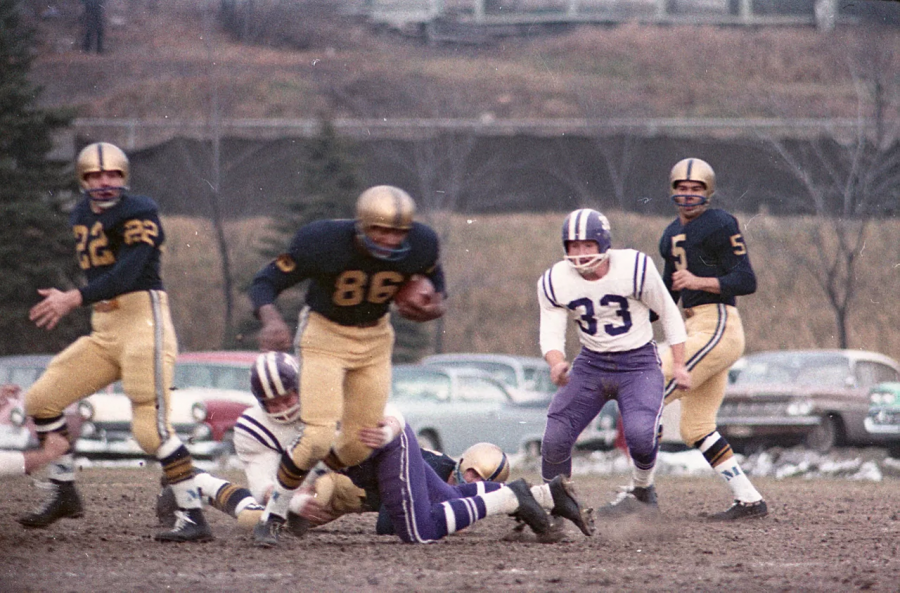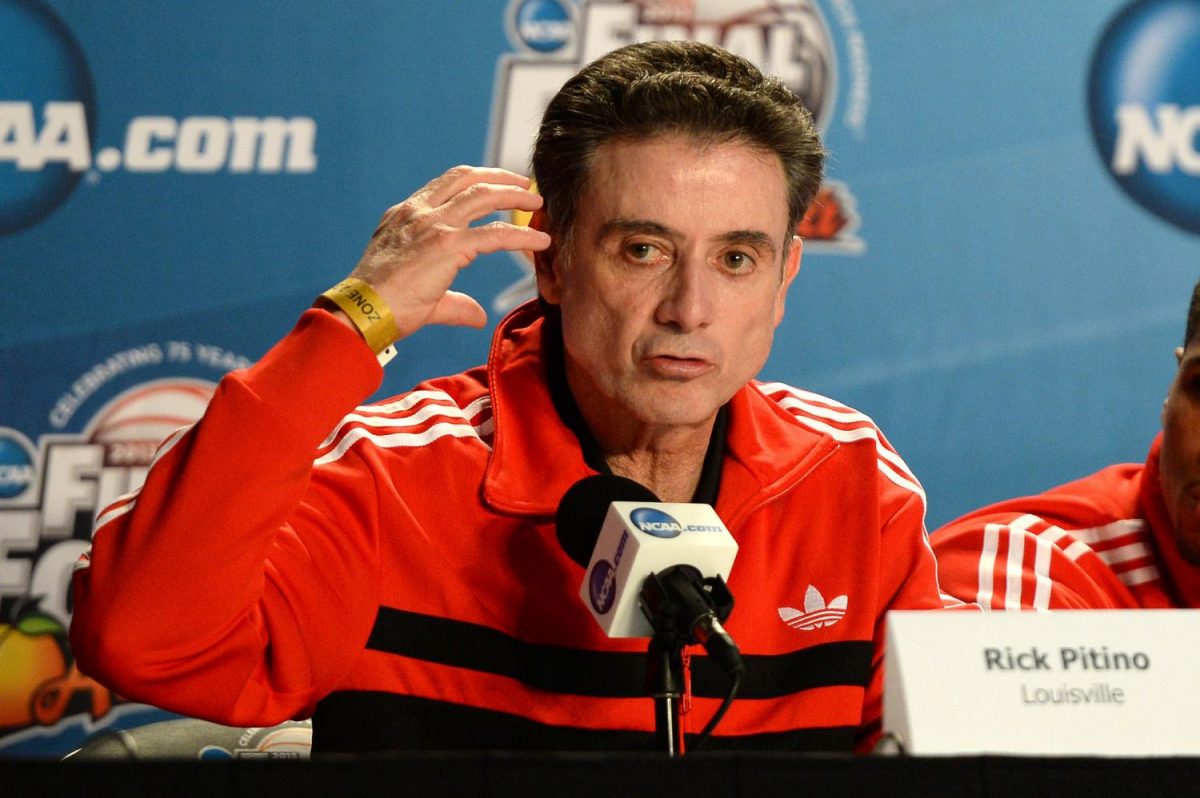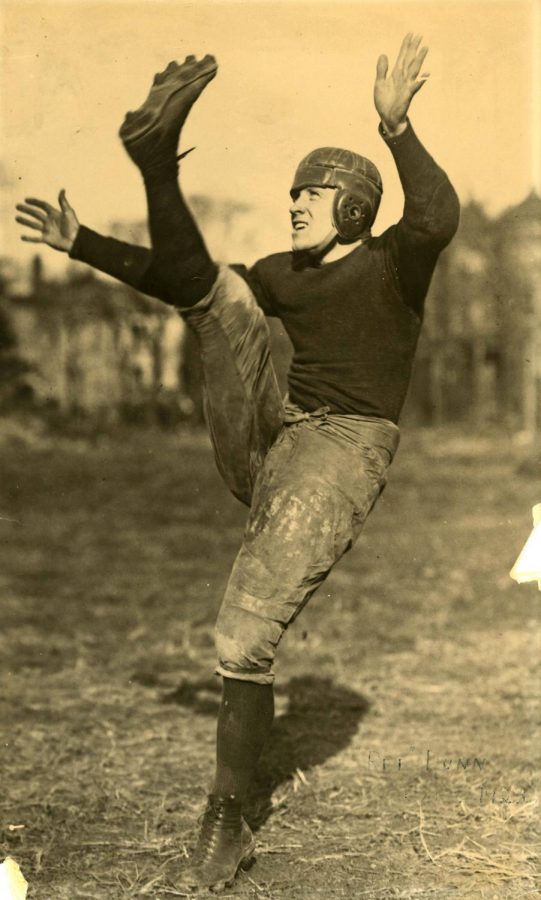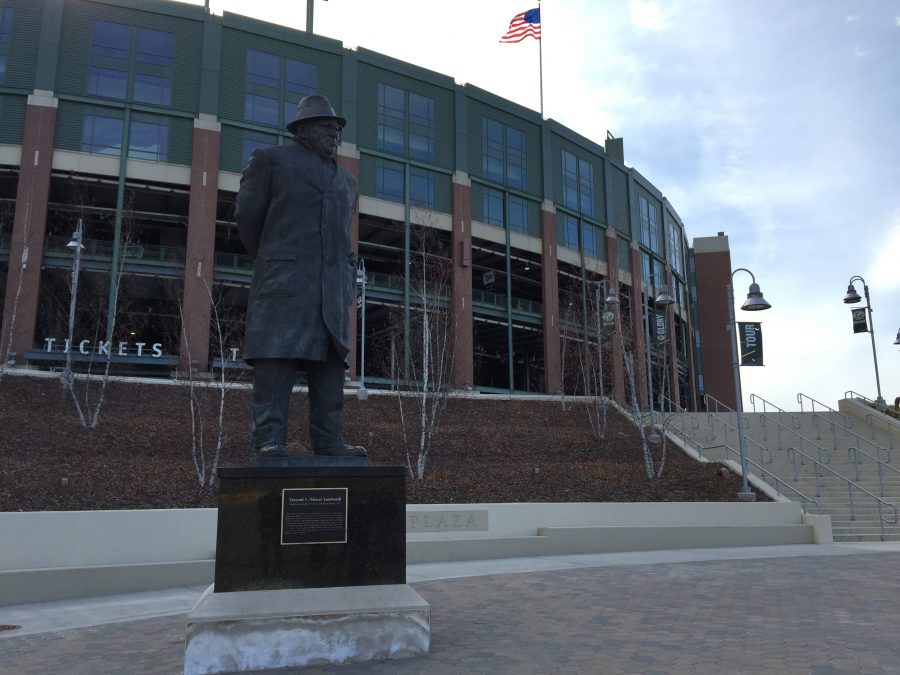
This is the second of a three-part series on the tradition, demise and future of Marquette’s Division I football team.
Following a successful six-win season in 1953 under head coach Liz Blackbourn, the Marquette football program seemed to be on the rise. But after seven years of questionable hires, increasing deficits on the school’s budget and a severe lack of performance on the field, the decision to cancel the program was made in 1960, ending Marquette’s 69-year run as a Division I program.
The demise of the program began when the Green Bay Packers, coming off a dismal 2-9-1 season, hired Blackbourn to be the team’s third head coach in 1954. Blackbourn had accumulated 18 wins over his first four seasons as Marquette’s head coach, and his eye for talent would soon be missed dearly.
Blackbourn was replaced by Frosty Ferzacca, who had previously coached at Green Bay West High School. It was an interesting choice, considering his lack of college head coaching experience, and the experiment flopped when Ferzacca won a combined five games in his two seasons at the helm.
Ferzacca was let go after the 1955 season in place of former Notre Dame assistant Johnny Druze, but a lack of recruiting in years past and competing against a notably tougher schedule caused Marquette to win just two games over the next three seasons.
In an attempt to boost attendance, Marquette signed a contract with the Milwaukee Braves’ County Stadium to play home games there beginning in 1957. However, attendance numbers hovered around 60 percent for a stadium that seated nearly 50,000 in the two years Marquette used the stadium.
“I looked at film of some of the games when we played in County Stadium and looked at the stands,” said Thomas Jablonsky, a professor in the history department and author of “Milwaukee’s Jesuit University: Marquette 1881-1981.” “They were empty. It was almost to the point where you could count everybody in the stands.”
After two unsuccessful head coaches and a failed attempt to increase attendance, Marquette re-hired Blackbourn in 1959 in a final attempt to save the struggling program. The former coach had compiled a 17-31 record over four seasons in Green Bay and remained on staff as a scout for an additional two seasons, drafting the likes of Bart Starr, Paul Hornung, and Ray Nitschke.
But by the time Blackbourn returned, it was too little too late. The university had incurred a $50,000 deficit, and school officials decided against raising tuition to keep the struggling program alive. On December 9, 1960, Father John Holbrook, chairman of the athletic board, announced the cancellation of the program.
“The attitude was positive when Blackbourn came back, and the belief was that the program was on the up-swing,” said Dennis Sell, a former Marquette basketball statistician and an expert on Marquette football. “There’s a chance if the program would have stayed around a few years longer the story would have played out different.”
Reactions from the players and fans differed. Members of the team remained on scholarship after the cancellation, said Bob Wilkins, a junior guard and linebacker on the 1960 team. But it was the end of an era that lasted almost seven decades.
“My first reaction was that it meant no more spring ball,” Wilkins joked. “But in all seriousness, my reaction was that it meant no more football for me, and that I wouldn’t be able to attend any more games.”
Since then, Marquette has instated a club football program that plays its games against other regional club programs at Valley Fields, but the city of Milwaukee has not seen Division I football in five decades.






